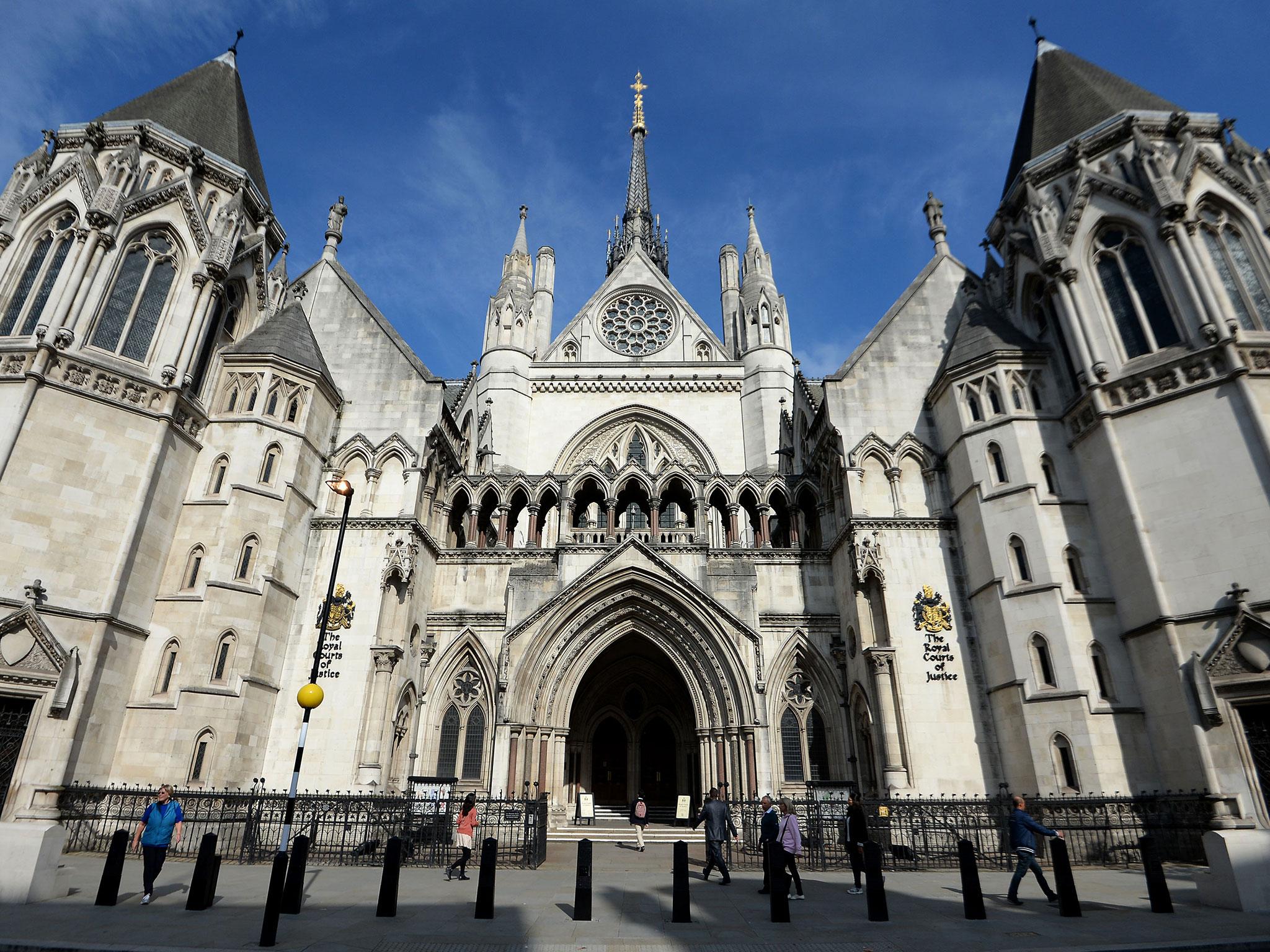High Court refuses permission for legal challenge over falling rape prosecutions
‘We will not stop,’ campaigners vow after proportion of reported rapes charged falls to 1.4%

Judges have refused permission for a legal challenge over plummeting rape prosecutions to go ahead.
The End Violence Against Women (EVAW) coalition accused the Crown Prosecution Service (CPS) of encouraging prosecutors to remove “weak” cases from the system.
Campaigners say rape has now been “decriminalised”, with only 1.4 per cent of reported offences now prosecuted in England and Wales.
At a High Court hearing on Tuesday, lawyers representing EVAW asked senior judges to allow a judicial review against the CPS for allegedly moving away from a “merits-based” approach to determining which cases should be prosecuted.
But Dame Victoria Sharp and Lord Justice Singh refused permission for a full hearing of the case.
Dame Victoria said: “In our view, it is clear that the full [prosecutors’] code test has included at all material times, and still does include, a merits-based approach.”
She added that a judicial review could not be used to resolve significant factual disputes between the CPS and EVAW.
Charities accused the CPS of making “aggressive requests” for them to pay its legal costs for the case as a result of the outcome.
The Centre for Women’s Justice, which brought the challenge on behalf of EVAW, said there was “enormous public concern” about falling rape prosecutions.
The annual Violence Against Women and Girls (VAWG) report released by the CPS in September showed there were just 1,925 convictions for rape or an alternative lesser offence during the financial year 2018-19, down from 2,635 in the previous 12 months – a drop of 27 per cent. During this period 58,657 rape cases were reported but only 5,114 cases were passed on to the CPS.
Director Harriet Wistrich said: “Ultimately the court was not prepared to deal with a complex factual dispute between our client and the CPS.
“This is not an end to the case as we will continue to expose the wrongdoing of the CPS which is contributing to the effective decriminalisation of rape. Ultimately our evidence and a lot more information on what is actually happening will come out. We are seeking leave to appeal. We will not stop.”
Sarah Green, director of EVAW, said it had been approached by numerous survivors of rape who had been “let down by the CPS”.
She added: “We know there are really serious problems. But instead of working with us the CPS chose to fight us. It is a long way from the kind of leadership we need in our public institutions.”
Ms Green said charities would pass their evidence to the government’s ongoing review of the handling of rape cases through the criminal justice system.
“The situation as it is cannot hold, it amounts to the effective decriminalisation of rape,” she added.
During the court hearing, a lawyer representing EVAW said there had been a “gradual, but steady, increase in positive outcomes for rape victims” from 2009 onwards, but the trend then reversed.
Phillippa Kaufman QC said the message delivered in CPS training sessions in 2016 and 2017 was that the merits-based approach should no longer be used and “weak” cases were encouraged to be removed from the system.
She told the court that there was no consultation about the changes, which have only come to light following correspondence from lawyers, media reports and the legal action brought by EVAW.
Lawyers for the CPS argued there had been no shift in policy and said it is “simplistic, artificial and wrong” to claim the drop in the number of prosecutions is attributable to the changing of the wording in its policy.
Tom Little QC, representing the CPS, told the court: “The drop in the number of sexual offences being prosecuted is a matter of real and pressing concern to the director of public prosecutions.
“But understanding the causes of the drop, and tackling it, require a whole system approach that encompasses government, police and the CPS.
“This claim invites the court to be a substitute for that process and to be an arbiter of prosecutorial policy.”
At the time of the VAWG report publication in September, the CPS said the drop in rape charges was due to “a number of factors”, including a reduction in the number of referrals from the police, and an increase in the volume of time-consuming digital data.
In December, HM Crown Prosecution Service Inspectorate (HMCPSI) commended CPS decision making.
It suggested that austerity-hit police forces were at fault for “losing rape allegations in the investigative process”, and found no evidence of allegations that the CPS had changed that way it chooses cases to take forward.
Senior police officers have accused prosecutors of “raising the bar” of evidence required to take rapists to court, following a 2017 scandal over collapsed cases that sparked an overhaul of evidence disclosure.
But HMCPSI said prosecutors were correctly applying the code used for all crimes, which states that only those with a “realistic prospect of conviction” can proceed.
Additional reporting by PA
Bookmark popover
Removed from bookmarks